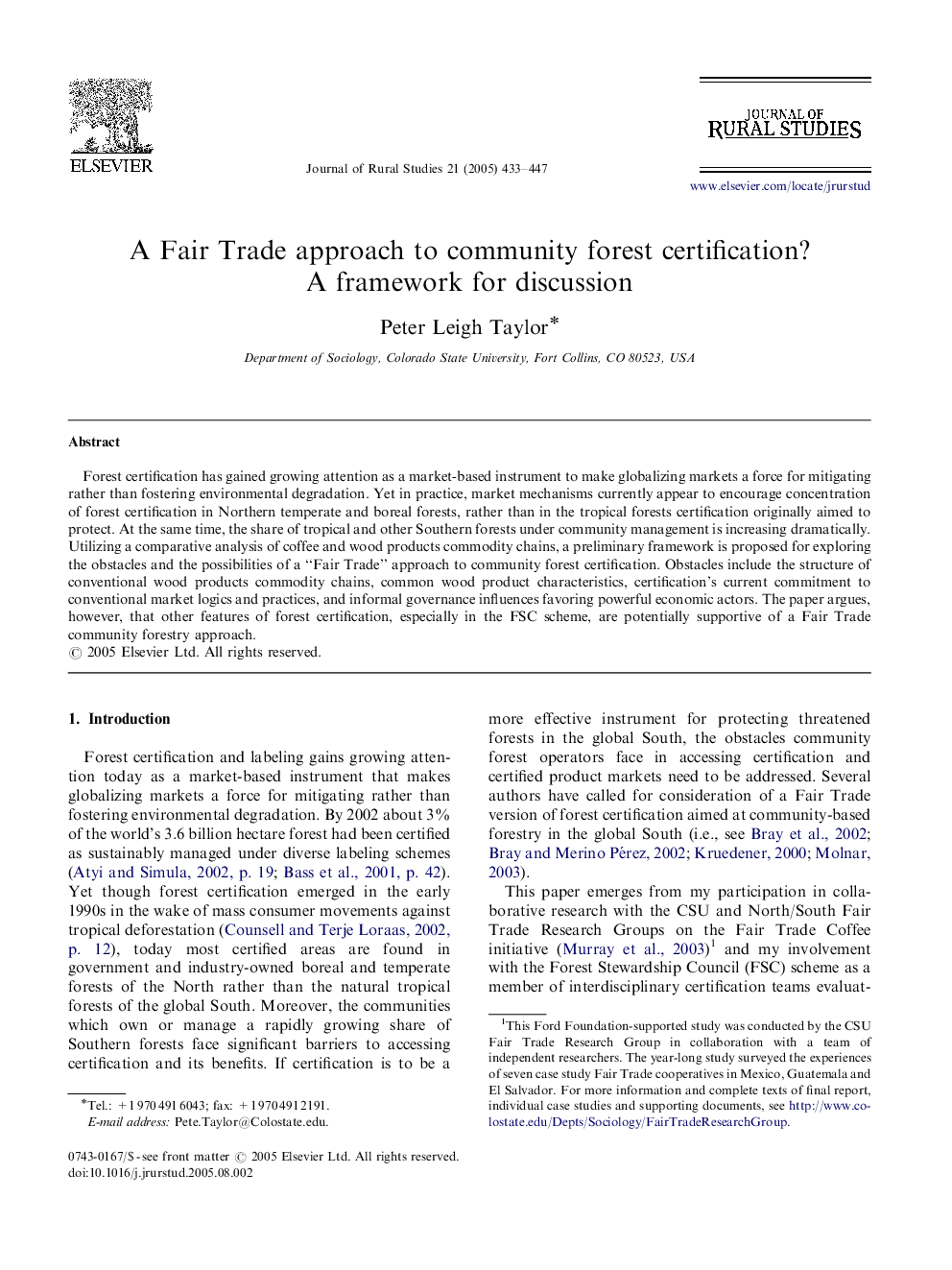| Article ID | Journal | Published Year | Pages | File Type |
|---|---|---|---|---|
| 10251458 | Journal of Rural Studies | 2005 | 15 Pages |
Abstract
Forest certification has gained growing attention as a market-based instrument to make globalizing markets a force for mitigating rather than fostering environmental degradation. Yet in practice, market mechanisms currently appear to encourage concentration of forest certification in Northern temperate and boreal forests, rather than in the tropical forests certification originally aimed to protect. At the same time, the share of tropical and other Southern forests under community management is increasing dramatically. Utilizing a comparative analysis of coffee and wood products commodity chains, a preliminary framework is proposed for exploring the obstacles and the possibilities of a “Fair Trade” approach to community forest certification. Obstacles include the structure of conventional wood products commodity chains, common wood product characteristics, certification's current commitment to conventional market logics and practices, and informal governance influences favoring powerful economic actors. The paper argues, however, that other features of forest certification, especially in the FSC scheme, are potentially supportive of a Fair Trade community forestry approach.
Related Topics
Life Sciences
Agricultural and Biological Sciences
Forestry
Authors
Peter Leigh Taylor,
